
The EV-302 trial is the confirmatory trial for the FDA’s accelerated approval of pembrolizumab plus enfortumab vedotin for the first-line treatment of patients with locally advanced or metastatic urothelial carcinoma.

The EV-302 trial is the confirmatory trial for the FDA’s accelerated approval of pembrolizumab plus enfortumab vedotin for the first-line treatment of patients with locally advanced or metastatic urothelial carcinoma.

Liposomal tacrolimus led to improvements in hematuria, bleeding sites on cystoscopy, microscopic urine analysis for red blood cells, and urinary symptoms.

Patients with MIBC were randomly assigned to receive APL-1202 in combination tislelizumab or to tislelizumab alone.
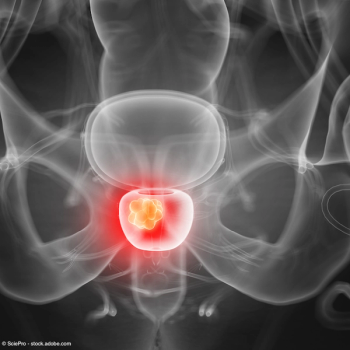
“We are pleased with the results we have generated in the BOP trial, which have shown that 64Cu SAR-Bombesin can detect lesions in men with biochemically recurrent prostate cancer that are negative or equivocal on PSMA PET,” said Louise Emmett, MBChB, FRACP, MD.
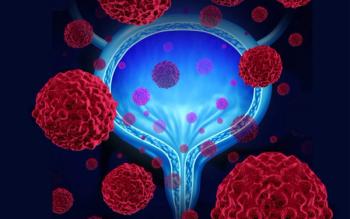
BT8009 targets the tumor antigen Nectin-4, which has elevated expression levels in urothelial cancer.

The EU application for erdafitinib in urothelial carcinoma is supported by data from cohort 1 of the phase 3 THOR trial.
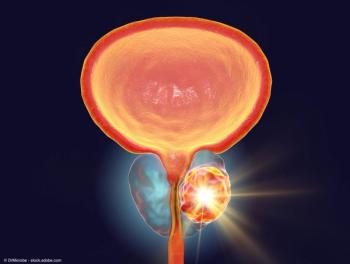
The Society of Nuclear Medicine and Molecular Imaging announced a consensus statement on patient selection and appropriate use of the radionuclide therapy 177Lu-PSMA-617 in patients with prostate cancer.

Erdafitinib previously received an accelerated approved for the treatment of adult patients with FGFR2/3-positive, previously-treated locally advanced or metastatic urothelial carcinoma.

The UK REIMAGINE study suggests that MRI screening can not only bolster PSA screening, but also has the potential to be the central component of a national prostate cancer screening program.
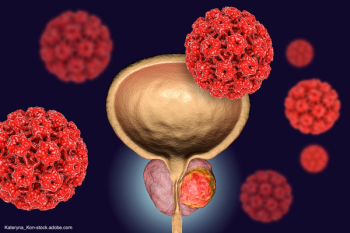
The approval of the olaparib/abiraterone regimen was based on an exploratory subgroup analysis of the phase 3 PROpel trial consisting of the 85 patients in the study with BRCA-positive metastatic castration-resistant prostate cancer.

The application is specifically for use of enzalutamide in patients with nonmetastatic hormone-sensitive prostate cancer with high-risk biochemical recurrence and is supported by data from the phase 3 EMBARK trial.

The FDA's decision was based on results from the OASIS trial, in which the Revi tibial neurostimulator device demonstrated significant efficacy for treating urge urinary incontinence in women.

In this interview, Yair Lotan, MD, discusses the steps needed for urine biomarkers to be incorporated into standard clinical practice in bladder cancer management.

The prospective, open-label, phase 2 SOLAR study enrolled 26 patients with metastatic prostate cancer.

Approximately half of prostate cancer patients with clinically actionable gene variants do not meet the NCCN guideline criteria for genetic testing, according to findings from the PROCLAIM trial.

The FoundationOne CDx test will identify patients who are eligible to receive niraparib plus abiraterone based on the genomic profile of their prostate tumor.

The approval of the niraparib/abiraterone dual-action tablet for BRCA-positive mCRPC is based on findings from the phase 3 MAGNITUDE study.
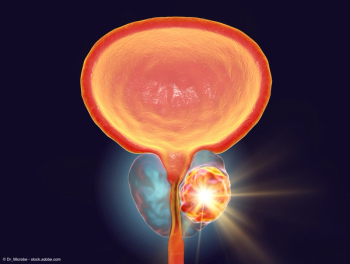
The SECURE trial exploring 64Cu/67Cu SAR-bisPSMA in patients with metastatic castration-resistant prostate cancer has advanced to the highest dose level.

The mitomycin-containing reverse thermal gel UGN-102 with or without TURBT reduced the risk of recurrence, progression, or death vs TURBT alone in patients with low-grade intermediate-risk non-muscle invasive bladder cancer.

The PRESERVE study of the NanoKnife System for the ablation of prostate tissue is exploring the focal treatment in patients with intermediate-risk prostate cancer.

In this interview, Scott Tagawa MD, highlights a session from the BCAN 2023 Think Tank exploring the latest developments in the treatment of patients with advanced urothelial carcinoma.

The Vanquish device is currently being assessed in the VAPOR 2 trial, which is evaluating the treatment in patients with intermediate risk, localized prostate cancer.

The study is exploring the intravesically-delivered oncolytic immunotherapy cretostimogene grenadenorepvec in patients with BCG-unresponsive non–muscle-invasive bladder cancer.

Flotufolastat F 18 is now included in the NCCN prostate cancer guideline recommendations for all the same categories as the other PSMA-PET imaging agents approved by the FDA.
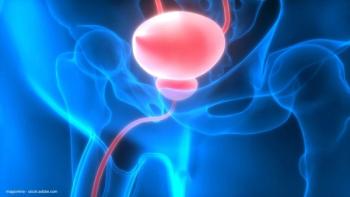
“Patients who present with [node-positive nonmetastatic bladder cancer] have a poor prognosis and should be counseled as to the most appropriate treatment, empowering them in their decision making with the knowledge that bladder preservation is a real alternative to radical surgery,” the authors wrote.

The SABRE trial is exploring the PET-imaging agent 64Cu SAR-Bombesin in patients with PSMA-negative biochemically recurrent prostate cancer following definitive therapy.

“Water vapor therapy shows great promise to provide patients with another option to proactively manage their cancer risk while preserving quality of life,” said Naveen Kella, MD.

"This landmark registry will facilitate more comprehensive knowledge of treatment and management [of Peyronie's disease] using real-world evidence," said Mohit Khera, MD.

The minimally invasive surgical therapy Optilume was recently approved by the FDA for the treatment of lower urinary tract symptoms secondary to BPH.
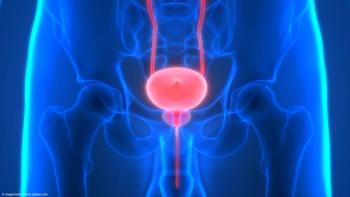
Patients receiving nivolumab plus cisplatin-based chemotherapy lived longer than patients treated with standard chemotherapy alone.